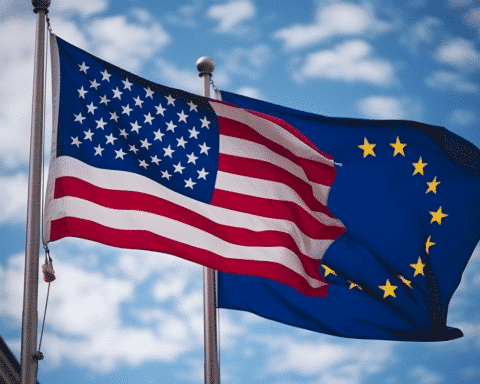Italy has taken decisive action to hinder the Chinese government’s access to critical chip technology by imposing restrictions on Sinochem, Pirelli’s largest shareholder.
Utilizing its “Golden Power” regulations aimed at safeguarding assets of strategic importance, the Italian government’s move follows similar interventions by Germany and the United Kingdom to protect their semiconductor technology.
This development threatens to escalate tensions between Europe and Beijing, particularly in light of ongoing strained relations and efforts to limit China’s access to advanced chipmaking technology.
As the geopolitical landscape evolves, multinational companies are also taking proactive measures to protect their operations from potential geopolitical frictions.
Italian Government Acts to Safeguard Chip Technology
Last week, the Italian government exercised its authority under the “Golden Power” regulations to protect the nation’s strategic assets.
Pirelli, in a statement on Sunday, confirmed the imposition of several curbs on its largest shareholder, Sinochem, with the intent of preventing Chinese government access to sensitive chip technology.
This action mirrors the interventions made by Germany and the United Kingdom in their respective efforts to safeguard semiconductor technology.
Heightened Concerns and Precedent Set
Europe’s decision to join the US-led effort in limiting China’s access to advanced chipmaking technology earlier this year was a significant step. The Netherlands, for instance, announced the introduction of export controls targeting ASML Holding, a vital supplier to the global semiconductor industry.
Italy’s recent move to restrict Sinochem’s involvement in Pirelli underscores mounting concerns and sets another precedent, reflecting the increasing focus on protecting sensitive technologies.
Strained Relations and Strategic Decision-making
The Italian government’s order imposes various limitations on Sinochem’s influence within Pirelli. Notably, Sinochem’s ability to devise the company’s strategy and financial plans, as well as appoint a CEO, is curtailed.
The restrictions aim to safeguard Pirelli’s autonomy, management, and strategic information of utmost importance. The order also requires Pirelli to decline any requests from Sinochem’s owner, China’s State-owned Assets Supervision and Administration Commission of the State Council, for information sharing related to proprietary technologies.
Broader Implications for Europe-China Relations
Europe’s relationship with China has faced strains arising from ideological differences and limited access to sensitive technology. The Italian government’s actions align with these concerns, further intensifying tensions between Europe and Beijing.
While Europe heavily relies on China for trade and investment, recent moves by EU regulators and governments demonstrate an increasing inclination to shield valuable technology from potential risks.
Considerations for Multinational Companies
The proactive steps taken by multinational companies to mitigate geopolitical friction are becoming more apparent. AstraZeneca, the drugmaker, is reportedly considering spinning off its China business and listing it separately in Hong Kong, signaling a strategic approach to protect its operations.
Sequoia Capital, the Silicon Valley venture capital group, has also decided to separate its China investments into an independent unit. These measures underscore the growing emphasis on securing business operations in the face of geopolitical challenges.
Continued Evaluation and Protective Measures
Looking ahead, Rome is evaluating the potential renewal of its partnership with Beijing concerning the Belt and Road Initiative. Simultaneously, the European Commission is set to unveil measures to protect prized EU technology from countries like China.
Governments and companies are actively adapting to the changing geopolitical landscape by taking various measures, such as scrutinizing outbound investments and enforcing export controls, in order to protect their strategic interests.
Emerging National Strategies in Protecting Semiconductor Industries
Italy’s move to restrict Sinochem’s involvement in Pirelli reflects growing concerns about safeguarding critical chip technology from the Chinese government’s access.
Following in the footsteps of Germany and the United Kingdom, Italy’s actions highlight the broader trend of countries protecting their semiconductor industry.
As geopolitical tensions persist and companies seek to insulate themselves from potential risks, the landscape of international business continues to evolve.




